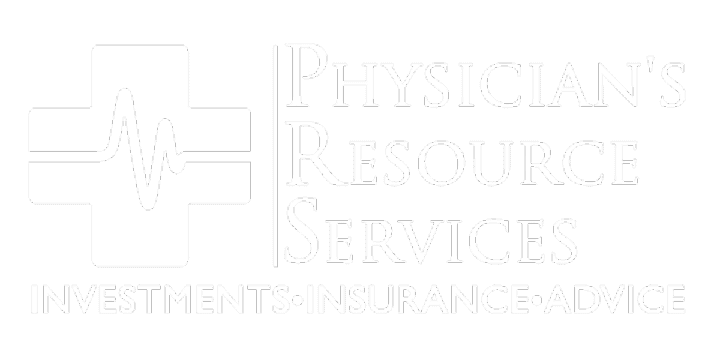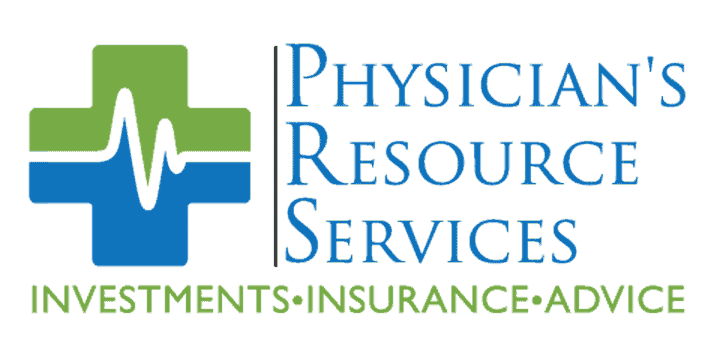 https://physiciansrs.com/wp-content/uploads/2024/04/Physiotherapist-women-training-with-men-patient-using-crutches-in-clinic.jpg
1250
2000
AbstraktMarketing
/wp-content/uploads/2022/03/prs-logo-color.png
AbstraktMarketing2024-04-03 13:14:212024-04-26 15:28:50Group Disability Insurance vs. Individual Disability Insurance: Pros and Cons
https://physiciansrs.com/wp-content/uploads/2024/04/Physiotherapist-women-training-with-men-patient-using-crutches-in-clinic.jpg
1250
2000
AbstraktMarketing
/wp-content/uploads/2022/03/prs-logo-color.png
AbstraktMarketing2024-04-03 13:14:212024-04-26 15:28:50Group Disability Insurance vs. Individual Disability Insurance: Pros and ConsNavigating Tax Planning for Physicians, Residents, and Fellows
Understanding the complexities of tax planning is crucial, especially for medical residents and fellows. It not only provides clarity on your income structure but also opens opportunities for maximizing your deductions and better planning for retirement. In this blog, we’ll explore the various aspects of income, strategies to optimize student loan interest deduction, retirement savings options, filing status, deduction options, and more.
Why Tax Planning Matters for Medical Residents and Fellows
There’s no denying the influence of effective tax planning on your financial health. This is especially true for medical residents and fellows, who are often just beginning to navigate the complexities of the tax code while shouldering a considerable training period and financial burden. Understandably, you might be more focused on your demanding clinical training than your tax bill. However, it’s critical that you don’t underestimate the importance of tax planning for physicians.
Implementing suitable tax strategies early can yield significant tax savings, directly impacting your overall financial situation. A clear understanding of tax deductions for medical residents, taxable income, and your potential tax liability can pave your way to a more secure and less stressful financial future. Plus, the right tax planning could provide you with tax breaks that don’t just reduce your tax burden but also help to increase your wealth over time.
Understanding Your Income as a Medical Resident or Fellow
Effective tax planning begins with a good understanding of your income. As a medical resident or fellow, your income structure likely consists of several components: salary, stipend, and numerous benefits. Knowing how to correctly report these allows for a correct calculation of taxable income. It also exposes potential tax savings, fostering a more favorable tax burden for physician families and individuals alike.
Salaries
As a medical resident or fellow, your primary source of income is likely your salary. Paid on a predetermined schedule, this regular income is subject to federal income tax, social security, and Medicare. A clear understanding of your salary structure, including any incremental raises, can guide your financial planning.
Stipends
In addition to salaries, medical residents and fellows often receive stipends. Some programs provide stipends for relocation, housing, or educational expenses. Remember, stipends are usually considered taxable income. Hence, they should be included when calculating your gross income for tax planning purposes.
Benefits
Added to salaries and stipends are assorted benefits—ranging from health insurance to retirement plans—which constitute yet another part of your earnings. Retaining a comprehensive understanding of these benefits and their tax implications can lead to further tax savings. For instance, contributions to a qualified plan like a 401(k) or a health savings account (HSA) can provide significant tax deductions.
Student Loan Interest Deductions
As a medical resident or fellow, you’re likely bearing the weight of significant student loan debt. The good news is the tax code provides some relief in the form of student loan interest deductions. This tax benefit is a crucial aspect of effective tax planning for physicians in training.
Why It’s Importance to Deduct Student Loan Interest as a Medical Resident or Fellow
The ability to deduct student loan interest could result in substantial tax savings for medical residents and fellows. Interest paid on student loans can be used to decrease your taxable income, reducing your overall tax burden. For instance, if you paid $1,000 in student loan interest throughout the year, that’s $1,000 less of your income subject to tax. This may lower your tax bill, proving beneficial as young physicians often find themselves in high tax brackets due to their relatively high income.
Eligibility Criteria
Technically, everyone who pays interest on student loans is eligible to deduct it. However, there are certain limitations based on the total adjusted gross income (AGI). As a medical resident or fellow, it’s imperative to be aware of these limitations. The deduction begins to phase out if your AGI exceeds $70,000 for a single filer or $140,000 for those filing jointly. The deduction completely phases out once the AGI crosses the $85,000 mark for single filers or $170,000 for joint filers. This phased-out deduction limit can significantly affect tax planning for physicians.
Maximizing Your Benefits Using Documentation and Optimization Strategies
To make the most of your student loan interest deduction, diligent documentation and optimization strategies are key. Organize your tax documents, receipts, and loan statements to show proof of interest paid throughout the tax year. Hire a financial advisor well-versed in tax planning for physicians to guide you through the nuances of deductibles and help you strategize your repayments. Having a sound strategy in place can help you achieve maximum tax savings by allowing you to manage your gross income effectively.
Retirement Savings Options
Saving for retirement might not be at the top of your priority list during your residency or fellowship. However, making arrangements for your future financial security is a cornerstone of financial planning for physicians. It’s never too soon to start considering your retirement savings options.
Why You Need to Start Early
Saving for retirement might not be at the top of your priority list during your residency or fellowship. However, making arrangements for your future financial security is a cornerstone of financial planning for physicians. It’s never too soon to start considering your retirement savings options.
Understanding Your Retirement Account Options
Retirement comes with an array of savings options, and understanding them is key to your financial security. As a medical resident or fellow, you should familiarize yourself with the options available:
- 401(k): Many workplaces offer retirement plans like a 401(k). Contributions to a 401(k) are pre-tax, which helps reduce your taxable income for the year.
- Roth IRA: A Roth IRA uses after-tax dollars and offers tax-free withdrawals at retirement. This account type can be beneficial if you expect to be in a higher tax bracket at retirement.
- Traditional IRA: Traditional IRAs provide immediate tax benefits, but payouts at retirement are treated as income.
- Employer Match: Many employers will match your 401(k) contributions up to a certain percentage.
Want to learn more about how you can start planning for your retirement? Explore our blog about maximizing your retirement plan and how that’s beneficial during tax season.
Knowing Your Filing Status and Deductions
When it’s time to file your taxes, understanding your filing status plays a significant role in determining your tax liability. Whether you are single, married, or head of household, each category has implications for your taxable income. Furthermore, it’s worth exploring how to maximize your deductions, whether through the standard deduction or itemized deductions.
Choosing the Right Filing Status
The filing status you choose can impact the amount of tax you owe or the refund you receive, as each status holds its own tax rate schedule and standard deduction amounts.
- Single: This filing status is for unmarried, divorced, or legally separated individuals. It has specific taxable income thresholds, one personal exemption, and particular tax obligations.
- Married Filing Jointly: This has a lower tax liability than filing separately, but both spouses are responsible for taxes owed even if they’re later divorced.
- Married Filing Separately: This has a higher tax liability, but spouses are not responsible for the other’s taxes.
- Head of Household: This is for unmarried individuals paying more than half the cost of keeping up a home for a qualifying person. Using this filing status can lead to a lower taxable income, higher deductions, and reduced overall liability. Special rules apply for qualifying children.
Maximizing Your Deductions
As a physician, resident, or fellow, understanding tax deductions can help reduce your overall tax bill. Regular expenses related to your medical practice, continuing education expenses, and certain lifestyle expenses can offer opportunities for tax deductions. But, deciding whether to itemize your deductions or take the standard deduction requires a bit of planning and understanding.
Itemized vs. Standard Deduction
The standard deduction is a flat dollar amount that reduces the income you’re taxed on. The amount varies depending on your filing status. Itemized deductions, on the other hand, require you to keep track of allowable expenses throughout the year. The decision to itemize or take the standard deduction depends on which method provides the greatest deduction. Some common itemized deductions for physicians may include medical expenses, state and local taxes, home mortgage interest, and gifts to charity.
Partnering With a Knowledgeable Tax Professional
Navigating complex physician finances and taxes can be challenging, making the advice of a tax professional invaluable for maximizing savings and deductions and avoiding costly errors. Their year-round guidance on strategic planning helps optimize your overall tax situation by identifying customized opportunities based on your personal circumstances and future plans that align with an effective physician financial roadmap aimed at effectively growing wealth. With their experience with complex tax codes and planning intricacies, these professionals can save you time and money.
Start Planning for This Year‘s Tax Season With Physician’s Resource Services
At Physician’s Resource Services, we specialize in providing customized tax planning and wealth management solutions designed specifically for physicians. Our team of knowledgeable professionals can help you minimize your tax liability, maximize deductions, efficiently plan for retirement, and more. We help you take the complexity out of taxes so you can focus on what truly matters: your patients. Contact us today to schedule a consultation.
Related Postings
 https://physiciansrs.com/wp-content/uploads/2024/04/Physiotherapist-women-training-with-men-patient-using-crutches-in-clinic.jpg
1250
2000
AbstraktMarketing
/wp-content/uploads/2022/03/prs-logo-color.png
AbstraktMarketing2024-04-03 13:14:212024-04-26 15:28:50Group Disability Insurance vs. Individual Disability Insurance: Pros and Cons
https://physiciansrs.com/wp-content/uploads/2024/04/Physiotherapist-women-training-with-men-patient-using-crutches-in-clinic.jpg
1250
2000
AbstraktMarketing
/wp-content/uploads/2022/03/prs-logo-color.png
AbstraktMarketing2024-04-03 13:14:212024-04-26 15:28:50Group Disability Insurance vs. Individual Disability Insurance: Pros and Cons https://physiciansrs.com/wp-content/uploads/2024/04/Front-view-of-someone-with-an-arm-cast-signing-a-document.jpg
1250
2000
AbstraktMarketing
/wp-content/uploads/2022/03/prs-logo-color.png
AbstraktMarketing2024-04-03 13:07:242024-04-26 15:28:51The Importance of Disability Insurance for Physicians
https://physiciansrs.com/wp-content/uploads/2024/04/Front-view-of-someone-with-an-arm-cast-signing-a-document.jpg
1250
2000
AbstraktMarketing
/wp-content/uploads/2022/03/prs-logo-color.png
AbstraktMarketing2024-04-03 13:07:242024-04-26 15:28:51The Importance of Disability Insurance for Physicians https://physiciansrs.com/wp-content/uploads/2024/04/Front-view-of-a-physician-speaking-with-a-patient.jpg
1250
2000
AbstraktMarketing
/wp-content/uploads/2022/03/prs-logo-color.png
AbstraktMarketing2024-04-03 12:08:542024-04-26 15:28:52Exploring the Nuances of Retirement for Physicians
https://physiciansrs.com/wp-content/uploads/2024/04/Front-view-of-a-physician-speaking-with-a-patient.jpg
1250
2000
AbstraktMarketing
/wp-content/uploads/2022/03/prs-logo-color.png
AbstraktMarketing2024-04-03 12:08:542024-04-26 15:28:52Exploring the Nuances of Retirement for Physicians
“You dedicate your life to helping patients with their physical health; Let us help you with your financial health.”
Locations
AUSTIN – (512)-334-6200
6500 River Place Blvd, Bldg 7, Suite 250 Austin, TX 78730
HOUSTON
6414 Fannin, Suite G-115 Houston, TX 77030
FORT WORTH
John Peter Smith Hospital 1500 South Main St. Room 02-0181 Fort Worth, TX 76104
GALVESTON
Rebecca Sealy Building 404 St Mary’s Blvd Suite 5.408 Galveston, TX 77550
This site may contain links to articles or other information that may be on a third-party website. Advisory Services Network, LLC is not responsible for and does not control, adopt, or endorse any content contained on any third-party website.
Advisory services offered through PRS Investment Advisors, a Member of Advisory Services Network, LLC. Tax services and insurance products offered through Physician’s Resource Services. Advisory Services Network, LLC and Physician’s Resource Services are not affiliated.
